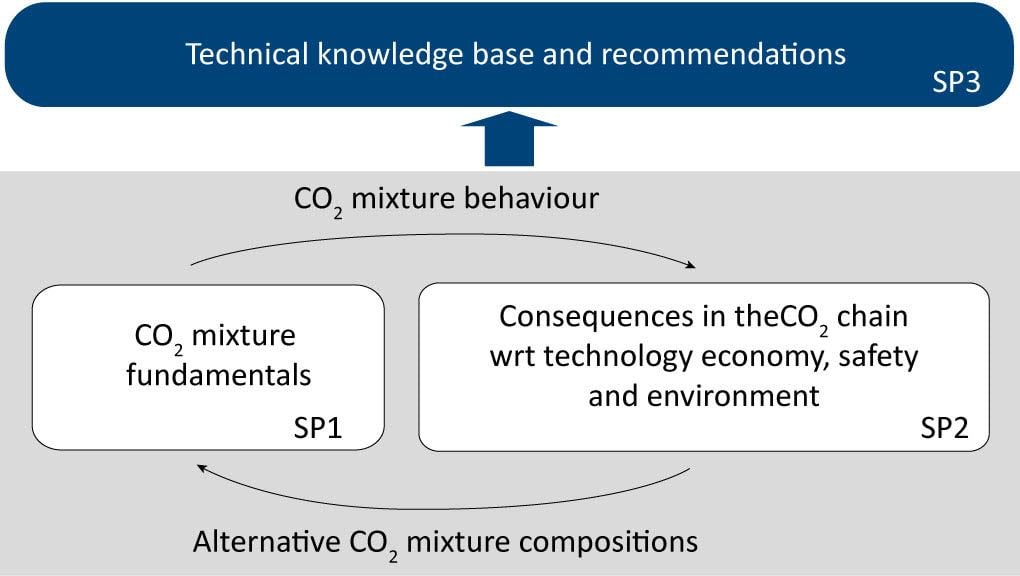
IMPACTS - The impact of the quality of CO2 on transport and storage behaviour
Why Impacts?

Carbon Capture and Storage (CCS) is an important element of the SET Plan, including the CCS European Industrial Initiative Plan 2010–2012 (EII) and Roadmap for CCS deployment.
IMPACTS will perform research and development of the impact of impurities in captured CO2, from power plants and other CO2-intensive industries, on CO2 transport and storage. This encompasses fluid properties, phase behaviour and chemical reactions in the infrastructure complex and at the storage sites. These issues are paramount for ensuring safe and efficient transport and storage solutions for CCS, since capture of CO2 without safe and efficient transport and storage offers no merit.
IMPACTS aims at generating fundamental knowledge and at transforming this knowledge into innovations, standardization and exploitation of results within CO2 transport and storage. A consortium with excellent stakeholders along the innovation chain has been established.
IMPACTS also responds to the overall objective of the Energy Theme in FP7 by contributing to a more sustainable energy system, less reliance on imported fuels and thus contributing to safety of supply in a carbon restrained worldwhilst increasing European competitiveness. CCS is seen as important to realize these objectives and all the technical elements in the CCS chain.
Concept
The idea of IMPACTS is to close identified knowledge gaps related to transport and storage of CO2-rich mixtures from various CO2 sources to enable realisation of safer and more cost-efficient solutions for CCS.
The main problems of impurities in CO2 transport and storage are:
- Lack of experimental data and verified property models for mixtures of CO2 and impurities related to CO2 capture
- Understanding the effect of impurities on materials, equipment, processes, operation and safety procedures
- Understanding how impurities will affect the storage integrity
CO2 has been transported for the purpose of enhanced oil or gas recovery for decades, particularly in the USA. Further, several CCS chains are currently in operation and more are planned e.g. Weyburn, Sleipner, Rangeley, In-Salah and Snøhvit)). Thus, much knowledge exists on the topic of CO2 transport and storage. Nevertheless, during the last few years, numerous research projects on CCS conducted by research and industry actors and other relevant work (CLSF, DNV, national projects) have concluded that there is a need to build new knowledge on the fundamental properties of CO2 mixtures with impurities and their impact on the CCS chain integrity and economics. Further, the 2010 CSLF Technology Roadmap sets forth these issues as priority activities to enable deployment of CCS.
The concept of IMPACTS is illustrated in the figure below. In SP1, the fundamental properties of relevant CO2 mixtures will be investigated to provide new knowledge for CO2 transport and injection regarding thermo dynamics, fluid dynamics and corrosion. Large scale experiments will produce data on the effect of impurities on CO2 transport and storage. These results will be used to assess the techno-economic impacts and safety issues on the C2 chain. The technical knowledge base will be developed in SP3.